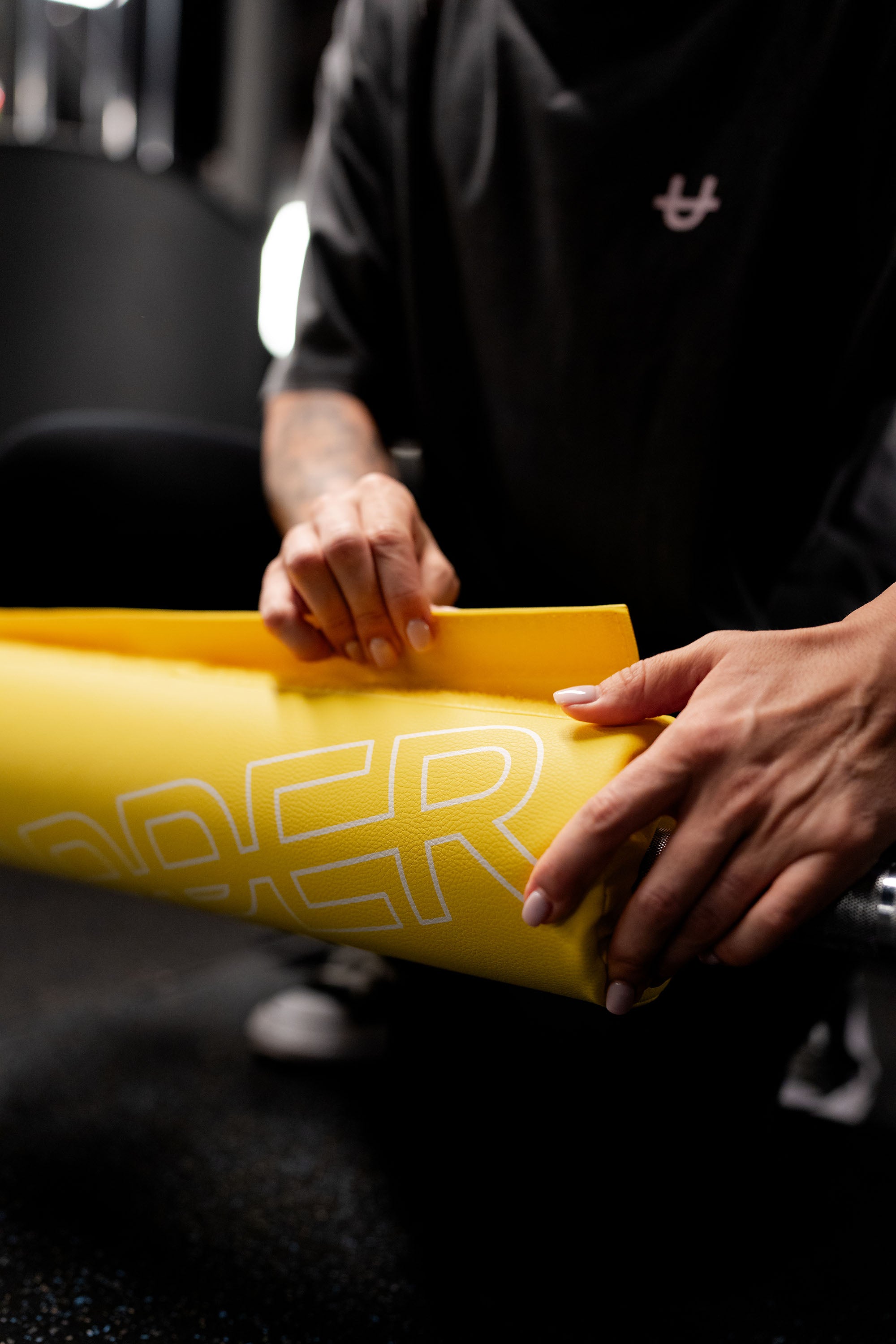Every weightlifter should have a barbell pad in their gym bag! Also known as squat pads, or hip thrust pads, this piece of weightlifting equipment is designed to make your barbell leg workouts more comfortable, and less painful.
A barbell pad is designed to take the pressure off of your hips, neck, and upper back when you're using a barbell. However, not all barbell pads are created equal. There are various types of barbell pads that come in different lengths, thicknesses, and materials. Some are high quality, while others tear quickly or absorb sweat. Knowing what to look for will ensure that you get the best barbell pad for your leg day!
In this article, we'll be guiding you in finding the best barbell pad for your gym needs. We'll also give you all the details on what makes UPPPER's Barbell Pads the best!
What should you look for?
Through extensive research aimed at ensuring the quality of our barbell pad, we have gained valuable insights into what factors contribute to the most comfortable lower body workout experience possible.
Below are the four main things you should consider:
Pay close attention to the material and thickness
The first thing to consider when looking for barbell pads is the material and how thick it is. The material should be durable, but soft so that it's comfortable, and thick enough so that there is enough cushion between your body and the barbell.
Also, pay attention to what material is made of. The best barbell pads are made with rubber or foam material because they tend to last longer and are comfortable. You also want it to be an extra thick foam, preferably 1.5" or more depending on your needs.
Look for one that is fully covered
There are typically two main types of barbell pads, fully covered ones and ones that are exposed. The ones that are exposed are exactly what it sounds like, they're uncovered. This means that your body is directly in contact with the foam pad, there's no cover to protect it from sweat or tearing. Covered barbell pads usually use polyester or synthetic leather to cover and protect the foam pad.
You want to opt for one that is fully covered because exposed ones get damaged pretty quickly and absorb your sweat. Plus, they're harder to clean! Having a protective wrap around the foam makes it easier to clean, lasts longer, and prevents the foam from soaking up any moisture.
Make sure it's secure
Typically exposed barbell pads slide on and off the bar, there's no way to secure the pad to the barbell – giving you another reason to go with one that is fully covered! This is very unsafe because without anything to secure the barbell pad to the barbell you'll increase the risk of it sliding around or even coming off during your lifts.
Make sure that your barbell pad has straps or a strong velcro that safely secures the pad to the bar. This will ensure that it doesn't move around during your training.
Look for an ergonomic design that fits your needs
This last tip is a matter of personal preference. Many barbell pads claim to be ergonomically designed for maximum comfort, however, not everyone finds the same things comfortable!
There are some barbell pads that are designed with a curved cut-out around the neck area as a way to make it more comfortable for your neck and shoulders. This is considered a barbell neck pad, and it's ideal for those who need support during heavy squats, lunges, or other lower body exercises that require the barbell to be across your shoulders. However, these aren't ideal for barbell hip thrust. Barbell hip thrusts can get real uncomfortable, real quick. So, if you're looking for a barbell pad for hip thrusts avoid ones that have the neck cut out, and opt for one that is a cylinder. But if your goal is to go heavier on squats and lunges and you don't want the barbell getting in the way of hitting PRs then look for a barbell neck pad with the neck portion carved out.
When should you use a barbell pad?
Barbell pads are designed to make heavy lower body barbell exercises more comfortable and reduce your risk of bruising. This means you should only use them during your heavy sets and only for exercises where the barbell makes direct contact with your body.
Use them for exercises like...
- Barbell hip thrusts
- Barbell glute bridges
- Squats
Any heavy barbell exercises (not warm up sets) that require the barbell to touch your neck, shoulders, or hips.
Investing in a good barbell pad will ensure that you can continue progressing on these exercises without hurting yourself or adding any unnecessary pain.
Get The Best Barbell Pad For Hip Thrusts At UPPPER
Now that you know what to look for, it's time to find the best barbell pad for you! We might be biased, but we believe (and know) that our barbell pads are the best for hip thrusts, and more.
Our Barbell Pads feature a 1.5” internal foam padding, wrapped with a comfortable and soft vegan leather, and secured with velcro lining. We tested various different designs to ensure we had the best one possible that helps protect your hips from the heavy pressure of barbells while also reducing your risk of injury and bruising.
They're easy to clean, durable, and will help make your leg days less painful so you can focus on what's important – lifting heavy.
>> Shop UPPPER Barbell Pads <<


